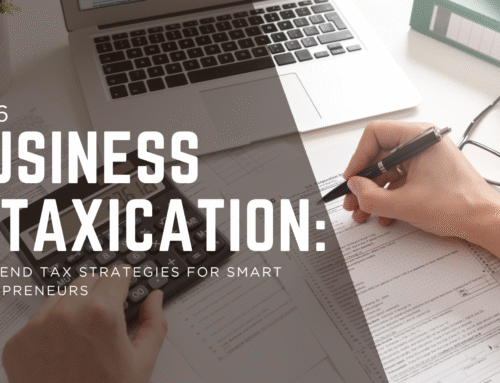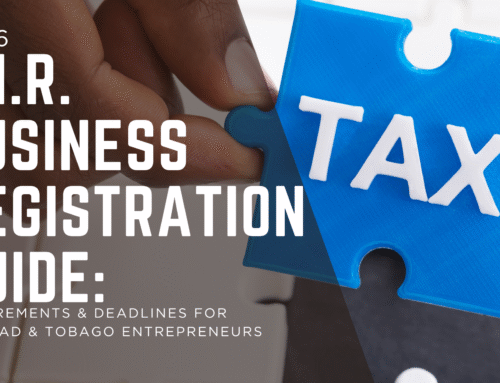
👤 For Self-Employed Persons & Sole Traders
This is a summary of specific taxes which may be applicable to the Sole-trader or Self Employed person and the dates on which they are due and payable.
💼 Who Is Considered Self-Employed?
Self employed persons include Taxi Drivers, suitcase traders, vendors, hairdressers, tradesmen, doubles vendors, etc.
Partnerships: A Partnership comprises two or more sole-traders. Therefore the responsibilities of the partners in a partnership are also included hereunder.
Self-Employed Tax Calendar
First Quarterly Installments DuePayment due for Income Tax, Health Surcharge and Business Levy
Income Tax Return DeadlineYour Income Tax Return for previous year is first due. Payment of all outstanding taxes for the previous Income Year is due and payable.
20% Interest BeginsInterest accrues on all outstanding liabilities at the rate of 20% per annum deadline date.
Second Quarterly InstallmentDue and payable in respect of Income Tax, Health Surcharge and Business Levy.
Third Quarterly InstallmentDue and payable in respect of Income Tax, Health Surcharge and Business Levy.
Final Filing DeadlineThe last day for filing your previous year Income Tax Return without accruing a penalty for late filing.
Late Filing Penalties BeginAn Income Tax return attracts a penalty of $100 for every six months it remains outstanding after November 1st.
Fourth Quarterly InstallmentDue and payable in respect of Income Tax, Health Surcharge and Business Levy.
🏦 VAT Registration Requirements
If VAT Registered your VAT Return is due and Taxes Payable on the 25th day preceding the Tax Period. For example, if you V.A.T. are payable on Sunday, VAT must be paid by Monday.
Tax Period: Your Tax Period is any two month period approved by the Board upon registration.
New Entrepreneurs: Business Registration Steps
Register Business NameRegister the Business Name with the Registrar of Companies
Apply for BIR File NumberApply for a Board of Inland Revenue File Number (if you don’t already have one)
Apply for PAYE NumberApply for a PAYE Number (if you have employees)
Apply for NIS NumberApply for a NIS Number (if you have employees)
Register for VAT (if applicable)Register for VAT (if projected receipts exceed TT$500,000/annum)
Taxation Types & Rates
💰 Income Tax – Sole Trader/Self-Employed
Rate: 25% of Chargeable Income/Profits
💡 Tax Breaks Available
Remember you have 11 tax breaks and allowance to use.
🏢 Corporation Tax – Limited Liability Company
Rate: 30% of Chargeable Profits
Payment Schedule: Quarterly on March 30th, June 30th, September 30th and December 31st
🏥 Health Surcharge
Applies to: Sole Trader, Partnership and Limited Liability Companies
| Weekly Income > TT$109 | TT$8.25/week |
| Weekly Income < TT$109 | TT$4.80/week |
Annual: $429 or $249.60
Quarterly: $107.25 or $62.40
📊 Business Levy
Applies to: Sole Trader and Limited Liability Companies
Threshold: Sales/receipts > $200,000 per annum
Rate: 0.6%
Payment Schedule: Quarterly on March 30th, June 30th, September 30th and December 31st
🌿 Green Fund Levy
Applies to: Partnership and Limited Liability Companies
Rate: 0.3% of income earned
Payment Schedule: Quarterly on March 30th, June 30th, September 30th and December 31st
⏰ Critical Payment Dates Summary
All quarterly payments are due on:
March 30/31Q1 Payment
June 30Q2 Payment
September 30Q3 Payment
December 31Q4 Payment
Pay on time to avoid penalties and interest!
Important Reminders for Self-Employed Individuals
📝 Record Keeping & Compliance
🗓️ Set Calendar Reminders
Mark all quarterly payment dates and filing deadlines in your calendar to avoid missing due dates.
💸 Understand the Penalties
- 20% annual interest on outstanding taxes from May 1st
- $100 penalty every 6 months for late Income Tax returns after November 1st
- Additional penalties for late quarterly payments
📊 Quarterly Payment Benefits
Paying taxes quarterly helps you avoid feeling overwhelmed at year end and prevents large, unexpected tax bills.
💼 Professional Advice Recommended
This guide provides general information. For specific advice tailored to your business situation, consult with a qualified accountant or tax professional in Trinidad & Tobago.
“A wealthy person is simply someone who has learned how to make money when they’re not working.” – Robert Kiyosaki
📚 Continue Your Business Education
For more business guidance, check out our other resources on business registration, financial planning, and entrepreneurship strategies.
Start planning your taxes now, download our free planner.







